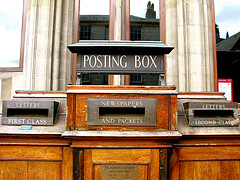The Benefits of Being Active in Your Own Community
Much of community management deals with matters that most members will never know about. So then, how does the average member form their perception of the manager? By what they know – largely, how the community manager participates in the community.
Participating can feel like a lighter part of the job because, well, it probably is. Talking about a movie, sharing an experience, starting a topic or replying to one – whatever you are doing, you are doing something that you probably do naturally with others, anyway.
Though I might not need to convince you that participating in your own community is a good thing, perhaps there are benefits of doing so that you are not yet aware of.
Activity
It can be easy to forget that you are, in fact, a member of the community. Your posts aren’t worth less than others. Your activity is community activity, that creates activity by others and helps to attract people to your community.
Recently, we discussed unethical seeding efforts. While it may not be a good idea to create fake accounts, that doesn’t mean that you can’t participate. That is one of the ways that you can seed your community in an appropriate manner.
When you contribute in a quality way, you are enriching your community and creating value for others.
Setting an Example for Other Members
Your community members take cues on how to participate from you and your staff. If you participate in an optimal way, you are setting a very powerful example for them to follow. If you respond in a helpful manner, others will see that and be more likely to do so. If you welcome someone, thank someone, highlight someone – there will be a greater chance of your members doing that, as well.
Some members will disregard your example, but plenty will not. Regardless, part of your responsibility within the community is to engage in a manner that is beyond even what you would expect from a regular member. Staff members, including you, should not push the guidelines.
Copyright Protection
You have a great community. Someone decides that they will scrape the content of the community without permission from your users, profit from it and compete with you for traffic in search engines. Unless your community specifically requires that submissions be released in a license that allows for this wholesale copying, this isn’t legal.
However, the way that most communities work is that you are granted a non-exclusive license to display posted contributions. Copyright does not transfer – it rests with the author of the post. This means that you do not have standing to pursue the scraper on the basis of copyright infringement.
But, as my friend Jonathan Bailey explained in his excellent “Content Theft: A Guide for Community Admins” article, participating in your community gives you standing to protect the posts that you have made because those posts are copyrighted to you. You have a direct copyright interest and can file a DMCA notice on your behalf. But, only on your behalf and only for your posts.
You can also contact some of your more active members and tell them what is happening and see if they would be willing to allow you to act as a designated copyright agent for them. That means you can file a notice on their behalf for their posts. The more posts involved, the harder it is for the infringer to simply delete a group of posts and keep the rest and the less patience that a web host may have for him or her.
What I describe here is true in the United States and in some other countries. Depending on where your website is hosted and where the website of the scraper is hosted, the circumstances may change.
It Humanizes You
Authority figures that are never seen can be regarded in a weird way. Soulless, robotic even. Not human. Generally, this is bad. There may be exceptions, such as communities where staff anonymity has been deemed vital. But, for everyone else, it can be counterproductive. People may have a more difficult time emphasizing with something they regard as less than human. They can be less likely to believe that the person has good intentions or that they are trying.
Being a participant in the community allows people to get to know you and, as such, relate to you. This is good because it means that you are more than just some cloaked figure deciding who lives and who dies. In a manner of speaking, of course. Some people abuse this familiarity. But, personally, I think there is usually far more to be gained by being human than there is to be lost.

